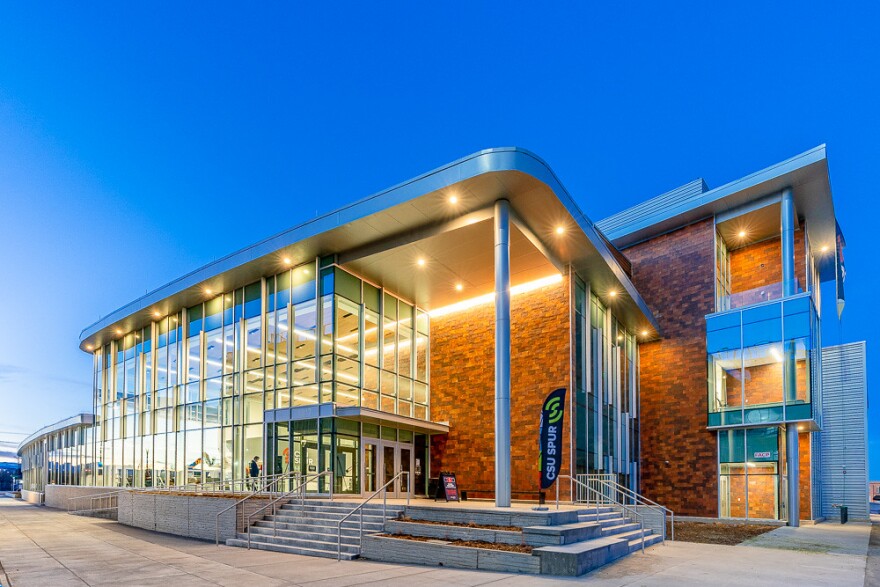CSU Spur is a free, public educational campus in Denver where visitors can learn about water, food and health through real-world experiences. The first building opened in January — it’s called Vida and focuses on animal and human health. The second building, Terra, is opening on June 8 and will focus on community food systems and food innovation.
KUNC’s Samantha Coetzee spoke with CSU Spur’s assistant vice chancellor Jocelyn Hittle about Terra and the vision behind Spur.
Interview Highlights:
These interview highlights have been lightly edited for length and clarity.
Samantha Coetzee: The CSU Spur campus will eventually comprise three main buildings — the Vida, Terra and Hydro — that focus on health, food and water. Why did Colorado State University decide to create an educational campus around these topics?

Jocelyn Hittle: CSU Spur is really geared toward innovating around big challenges that are facing us both locally and globally. So our buildings are thematically oriented. As you mentioned, we have a building that's focused on health, both human and animal, and environmental health. We have a building focused on food and agriculture and food systems, all the way from food production to cooking and nutrition. And we have a building focused on water. We feel that these are three very important themes, both for the state of Colorado and around the world. And we wanted to bring together students, researchers, young people, families, businesses, corporate and industry partners, really everyone who might have something to offer either now or in the future to help us solve these really big challenges.
The second building, Terra, opens today. What can people expect to see and do during a visit?
Visitors can expect experiences that connect with every step along the food system when they come to Terra. So we have educational exhibits throughout that take you through production of new food, product creation, to distribution, to marketing and sales of new food products to cooking and consumption and nutrition. So every step along the way. That means you also will be able to experience our food laboratory where companies, whether they're small startups or larger companies, can come and create new food products. A teaching kitchen, which is about teaching cooking and nutrition to kids and families.
You can experience controlled environment agriculture, which is where we really tightly control things like humidity and temperature and lighting to see how we might be able to more efficiently grow plants and food in different environments. You'll be able to experience a laboratory where our scientists are testing soil samples, water samples, plant samples to help both farmers and backyard gardeners grow food better. And you'll also be able to experience our green roof where we are doing research and education and demonstration on food production on rooftops, as well as our rooftop greenhouse, where we will be growing food and educating people about all of the different ways that you can grow food in a smaller space like an urban environment. So it really takes people all the way through the food system and is a really great way to connect with the scientists and professionals who are actually doing that work and be able to understand a little bit more about what they do and how you might be involved.
Why do you think free education opportunities like this are important?
We really feel that we want to start young with kids, helping them to understand how they can contribute to big challenges — the big challenges that we have both locally and globally, around food, around water and around health. So our hope is that kids will come with their families. They'll come on field trips and be inspired to think about ways that they can contribute and careers they might not be currently considering because they don't even know about them yet.
The idea here is that we're connecting young people, lifelong learners with scientists and professionals at work. We're really excited about the opportunity for kids to engage directly with people who are working on these big challenges and know that they have a role to play regardless of their background, regardless of their interests. There is a way for them to connect and then also to help provide them with the information they need to pursue those careers. So considering what are the educational pathways they need and how can CSU and other educational institutions help guide them on a path to a career and meaningful contribution to these big challenges.



